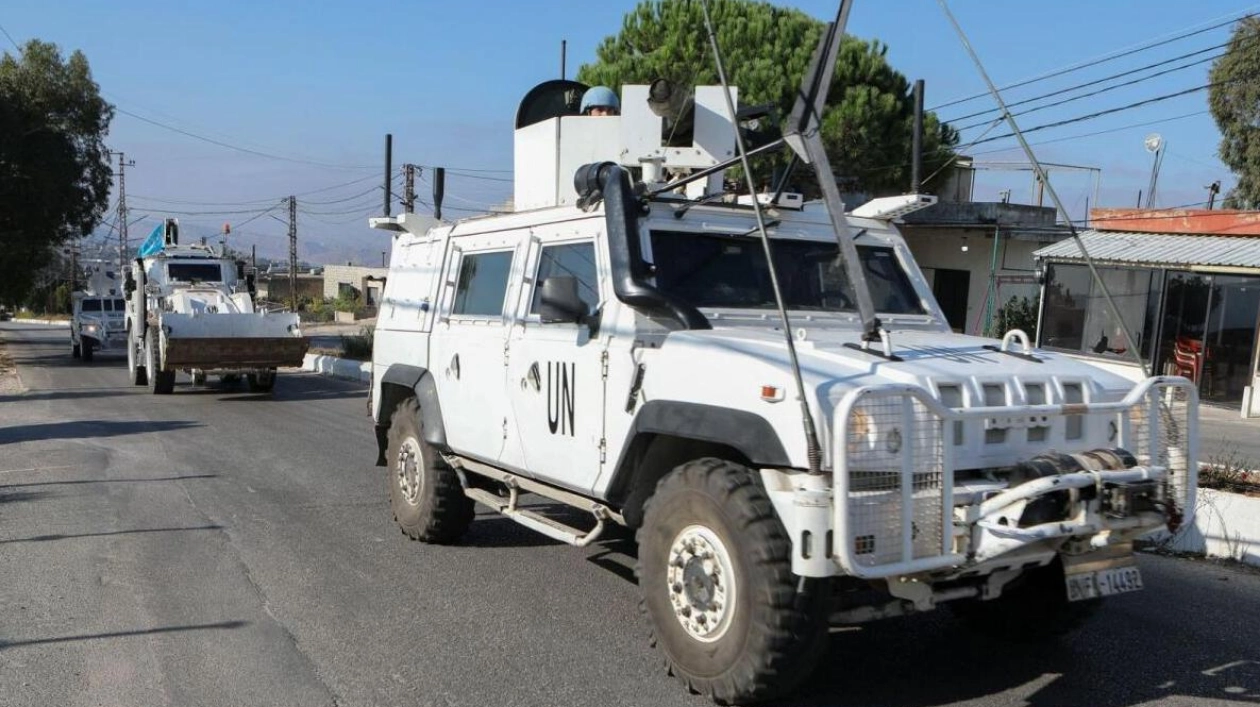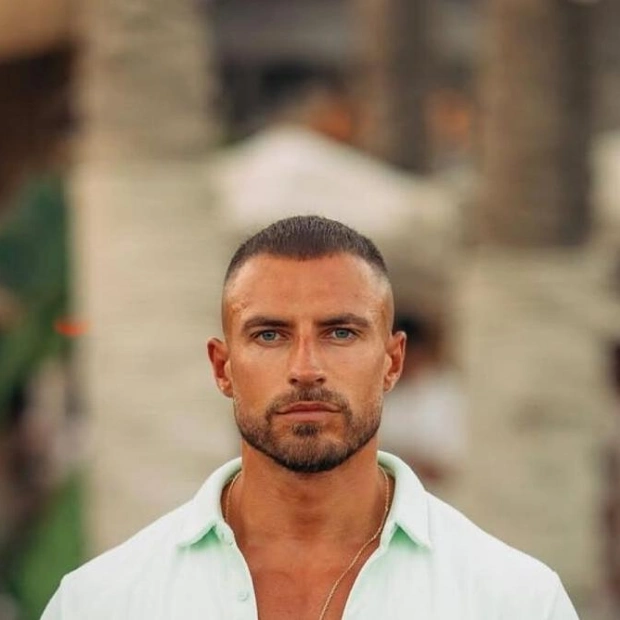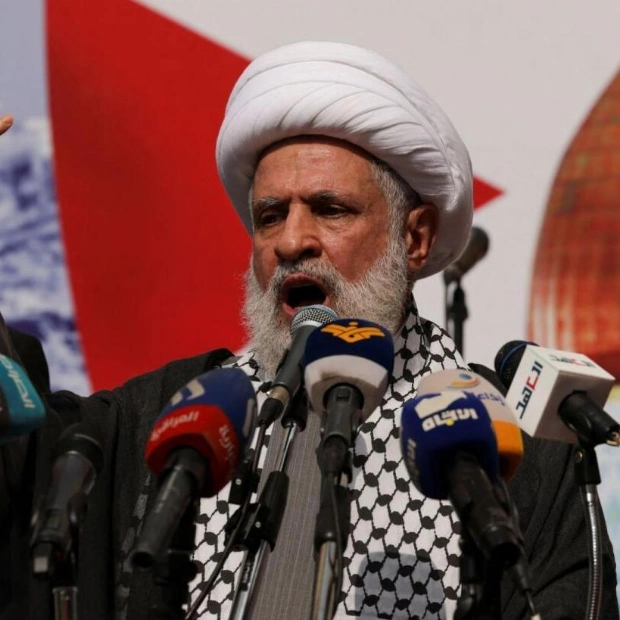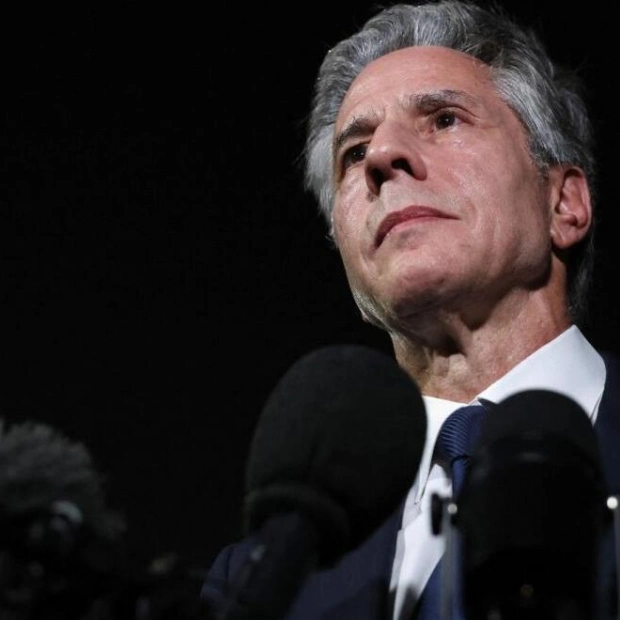UN peacekeeping vehicles were seen in Marjayoun, close to the border with Israel, as tensions between Hezbollah and Israeli forces continued in southern Lebanon on October 11, 2024. — Reuters
Israel broadened its targets in its conflict with Iran-backed Hezbollah in Lebanon on Monday, resulting in the death of at least 18 people in the first strike on the predominantly Christian town of Aitou in the north, according to the Lebanese Red Cross. Thus far, Israel's military operations in Lebanon have primarily focused on the south, the eastern Bekaa Valley, and the suburbs of Beirut. The northern strike targeted a house rented to displaced families, as confirmed by Aitou Mayor Joseph Trad to Reuters. In addition to the fatalities, four individuals were injured, the Red Cross reported.
Israel ordered residents of 25 villages to evacuate to areas north of the Awali River in southern Lebanon as it escalated its attacks in the region. An Israeli strike claimed the life of Muhammad Kamel Naim, the commander of Hezbollah’s elite Radwan Force anti-tank missile unit, in the Nabatieh area of south Lebanon, according to the military. Hezbollah has yet to comment on this.
These operations occur amidst heightened tensions between Israel and the UN peacekeeping force UNIFIL in south Lebanon. Israeli Energy Minister Eli Cohen reiterated Prime Minister Benjamin Netanyahu's call for the UN troops to withdraw. Israel and the United Nations have been exchanging accusations regarding the peacekeepers in south Lebanon, as Israel continues to advance its forces through the area in an effort to eliminate Iran-backed Hezbollah and its military infrastructure while also battling Hamas in Gaza. The UN reported that Israeli tanks breached its base on Sunday, marking the latest in a series of allegations of Israeli violations against peacekeeping forces, which have been condemned by Hezbollah and Israel's allies. Israel disputed the UN's account, and Prime Minister Benjamin Netanyahu called for the peacekeepers to withdraw, alleging they were acting as 'human shields' for Hezbollah during the surge in hostilities. Hezbollah denies using the proximity of peacekeepers for protection.
The Middle East remains on high alert as Israel is expected to retaliate against Iran for the barrage of long-range missiles launched on October 1 in response to Israel's assaults on Lebanon. The Pentagon announced on Sunday that it would deploy US troops to Israel along with an advanced US anti-missile system as Israel contemplates its expected retaliation against Iran. The Israeli military took foreign journalists to southern Lebanon on Sunday, showing them a Hezbollah tunnel shaft located less than 200 meters from a UNIFIL position, as well as weapon caches discovered by the troops. Brigadier General Yiftach Norkin stated that the tunnels were constructed a few years ago. 'We are actually standing in a military base of Hezbollah very close to the UN,' Norkin said, pointing to the shaft's trap door in an area covered by undergrowth and overlooked by a UN observation post. Since announcing its ground operation near the border, the Israeli military claims to have destroyed numerous Hezbollah tunnel shafts, rocket launchers, and command posts. 'We found several days ago a huge quantity of weapons originally coming from Iran and Russia. Brand new,' said Colonel Olivier Rafowicz. 'They were prepared for attacking us and (launching) a large invasion into the north of Israel,' Rafowicz said, displaying crates of weapons to the journalists. Hezbollah and Israel both acknowledge the group's extensive tunnel network in southern Lebanon, with Israel estimating they extend for hundreds of kilometers. A Hezbollah field commander told Reuters last week that the tunnels 'are the foundation of the battle.' Hezbollah has yet to comment.
UNIFIL has stated that previous Israeli attacks on a watchtower, cameras, communications equipment, and lighting have limited its monitoring capabilities. UN sources express concern that any violations of international law in the conflict will be impossible to monitor. The European Union's member states have been too slow to condemn Israel's attacks on UNIFIL soldiers in Lebanon, according to the European Union's foreign policy chief Josep Borrell, who described the attacks as 'completely unacceptable.' EU countries, led by Italy, France, and Spain, have thousands of troops in the 10,000-strong peacekeeping mission in southern Lebanon, which has reported repeated attacks from Israeli forces in recent days. On Monday, Spanish Prime Minister Pedro Sanchez urged European Union members to respond to a request by Madrid and Ireland to suspend the bloc's free trade agreement with Israel over its attacks in Lebanon and Gaza. The conflict between Israel and Hezbollah resumed a year ago when the militant group began firing rockets at Israeli positions in support of Hamas at the start of the Gaza war and has sharply escalated in recent weeks. Israel states that its operations in Lebanon aim to secure the return of tens of thousands of its residents displaced from their homes in northern Israel.






